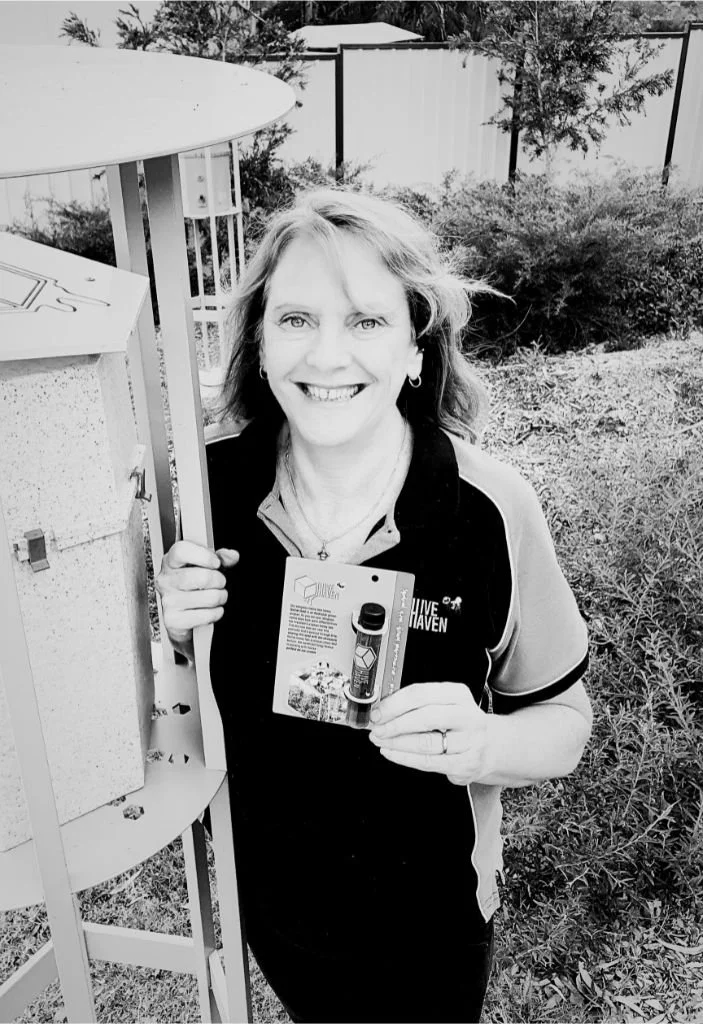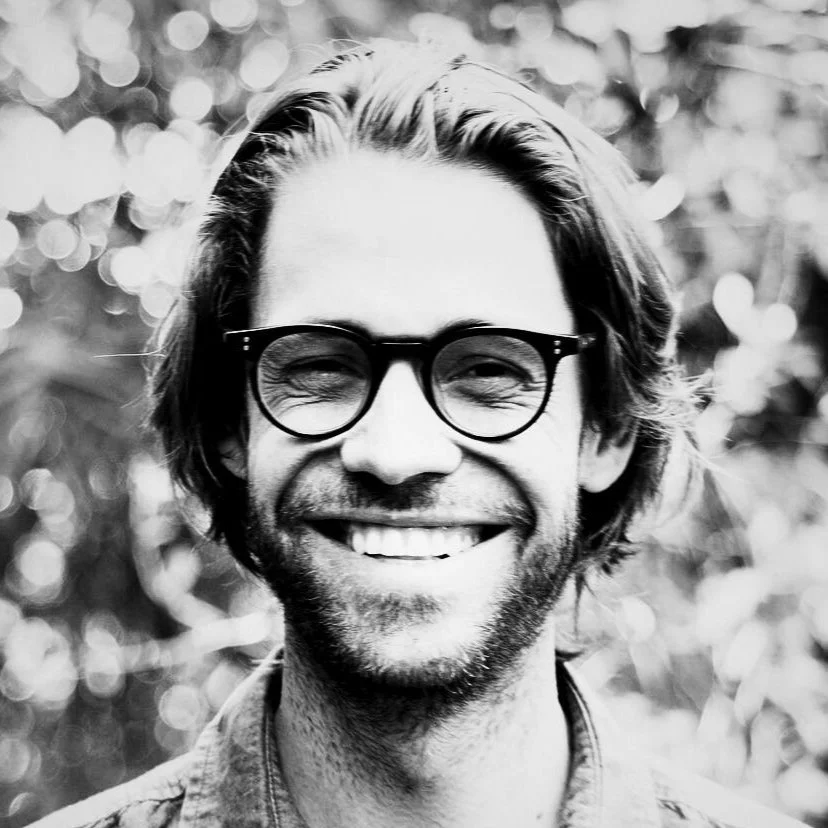Ann Ross On Creating Purpose-Led Agribusinesses To Protect Native Australian Bees
Ann Ross is a leader in agricultural innovation and the Co-founder and Managing Director of Hive Haven, an internationally recognised company, specialising in Australian stingless native bee products.
She is a farmer and entrepreneur with a passion for hive design and manufacturing. Ann’s hives are manufactured using recycled blended plastic that focus on delivering a solution to hive overheating which is critical, as we prepare for climate change and a warming world.
Ann’s vision is to help farmers safeguard and manage their own future on-farm pollination needs, whilst producing hive value export quality native bee products (honey & propolis).
Ann discusses how innovative agribusinesses lay the foundations for long lasting environmental change, and opportunities for entrepreneurs to integrate innovative technology into their solutions.
Highlights from the interview (listen to the podcast for full details)
[Indio Myles] - To start off, could you please just share a bit about your background and what led to your work in purpose-led enterprise?
[Ann Ross] - I never expected to be an Australian stingless native beekeeper! I guess I class myself as an apiarist and hive manufacturer. Quite a few years ago now, I was working in my mechanical repair business and my husband was running a few honeybee boxes in our backyard. I invested in five stingless native beehives; they really fit my lifestyle, I love vegetable gardens, and I wanted something to pollinate my fruit trees. Native bees are easy to look after, and they live in a smaller box than traditional European honeybee.
In 2014, we had a spike of heat waves. We are living in a warmer world now, but those intensive heat spikes are deadly to stingless native bees. The colonies melted in on themselves, and I was totally devastated. One hive looked like it was going to survive, so my husband (Jeff) built a HDPE plastic bee box in the back shed. We put the one surviving nest into that box, and it survived. As we moved forward, that catapulted us into a six-year journey to manufacture a stingless native bee box which would alleviate hive overheating. Now we call the box we retail the V9; that just demonstrates we've gone through nine iterations of hive design and material to be where we are today.
The value add on the V9 Hive Haven is the hollow insulation cavity. It’s made from recycled blended plastic, and (for instance) the lid is made using 100% recycled milk bottles by students locally here in Queensland.
The hive design enables people to harvest stingless native bee honey and propolis. It's a growing industry and we can see a bright future for the preservation of the native bee.
As Co-founder and Managing Director of Hive Haven, can you please share more about the impact this enterprise is having and the positive change you're generating through this product?
There's always been a few myths around Australian stingless native bees; that they are inefficient as pollinators or only produce one kilogram of honey a year. People have always been concerned about where you can place them.
THE INDUSTRY IS IN CONTINOUS CHANGE THROUGH HIVE INNOVATION AND TECHNOLOGY GIVING PEOPLE MORE CONFIDENCE TO INVEST IN THE STINGLESS NATIVE BEE WHICH ULTIMATELY AT THE END OF THE DAY WE HOPE WILL PRESERVE THE SPECIES THROUGH MORE PEOPLE FARMING IT.
More people will become aware and ongoing research will create a greater understanding of this amazing little insect's needs.
How could the Australian agribusiness sector change to better respond to and mitigate the social and environmental impacts it is creating?
Firstly, I have to say agribusiness is alive and well in Australia, especially where I live on the Sunshine Coast. We are seeing a lot of systems thinking happening around the place, and people are starting to value add for themselves. They're taking back control of their product and working from product right through to the retail shelf. In the agricultural space we are seeing amazing innovation around where we are growing our food and what food we are growing. In cities for instance, we're seeing warehouses turned into integrated farming spaces for fish and produce, and that's where the Australian stingless native bee will shine, in that tunnel and greenhouse situation. They're an effective pollinator, they can adapt to life within a closed system, and those systems are being environmentally conscious of their water and soil use. It's a win-win as we move forward; a lot of innovation is happening in the agricultural space.
Hive Haven recently collaborated with Pimpama State Secondary College on a project which blends education, circular economy, upcycling, and local manufacturing. The project involved students turning milk bottles into parts for hives. What have you learned from this experience and how might we equip young people with skills to tackle environmental threats in the future?
It's such a huge conversation and this is a project that just makes my heart sing. It takes you back to your why; why we do what we do. Just by talking with those students, we always came away with our head popping with challenges. They challenge you just through the questions they ask. The teachers are just so hardworking behind the scenes to keep this project going.
The skills these students are learning will not only enable them to actively partake in the industry if they so choose, but it also creates a greater awareness. They'll move on and become consumers at some point, so if they understand where their products are coming from and what they're made of, they'll become advocates for change.
We do see a lot of recycled product talk, but it's not that easy to buy recycled products out in the marketplace. These students will learn and advocate and talk through their conversations. They're the consumers of the future, so they'll be the change makers.
As an Impact Boom program alumna, what is your advice for up-and-coming entrepreneurs seeking to create a positive impact through business?
The positive advice I like to always align with is firstly stay true to your values. When you're trying to get a product to market, people are impatient. They're waiting, but they also just want to help you. They will say, "get to market, just go with your MVP." But, unless that product aligns with your values, hold back. Wait until you are ready; that's difficult.
My last piece of advice would be to never stop looking back down the fence. It's a saying which means remember where you came from. Remember those people who gave you a leg up in the early days; they could see your vision, your potential, and they were the ones who took a chance on you. That might've been through giving a kind word or by getting you into a workshop when you couldn't afford to pay. When you can, mention them, thank them, and take them on the journey.
It never costs anything to say thank you. Don't forget those who helped you in the early days.
That would probably be the advice which has carried me this far.
What inspiring projects or initiatives have you come across recently that are creating a positive social change?
One project springs to mind. I was fortunate to go to the 2023 Northern Australia Food Futures Conference a couple of weeks ago in Darwin. I learnt about this amazing project farming the Blacklip Oyster, where a lot of stakeholders are collaboratively working to re-energise that industry with Indigenous Australians. It's part of their culture to hunt and gather, but they're also working with the Federal Government and Northern Territory to develop that industry. It is such an inspiring story which I'm following intently, and we went out and bought a dozen Blacklip Oysters before we returned to Brisbane.
To finish off, what books or resources would you recommend for our listeners to check out?
I skim through a lot of resources. I am currently taking a deep dive into systems thinking to refresh myself. One of my favourite books would be Re-Inventing the Corporation; it's a book John Naisbitt wrote many years ago. It talks about futuristic companies and how they look after their employees while giving back to the community and society. That's a book which has really stuck with me. I like to keep tabs on Advance Queensland, there is a lot going on there with our Chief Entrepreneur whose posts I find interesting. Of course, there is also Impact boom. I think you're the forefront of Australian social enterprise, and a channel to tune into. I also recommend the Impact Boom Elevate+ Accelerator program, not only because of the contacts and networks you create, but also the future advantages of being in the alumni network. It's definitely a program to look at.
Initiatives, Resources and people mentioned on the podcast
Recommended books
Re-Inventing the Corporation: Transforming Your Job and Your Company for the New Information Society by John Naisbitt & Patricia Aburdene








